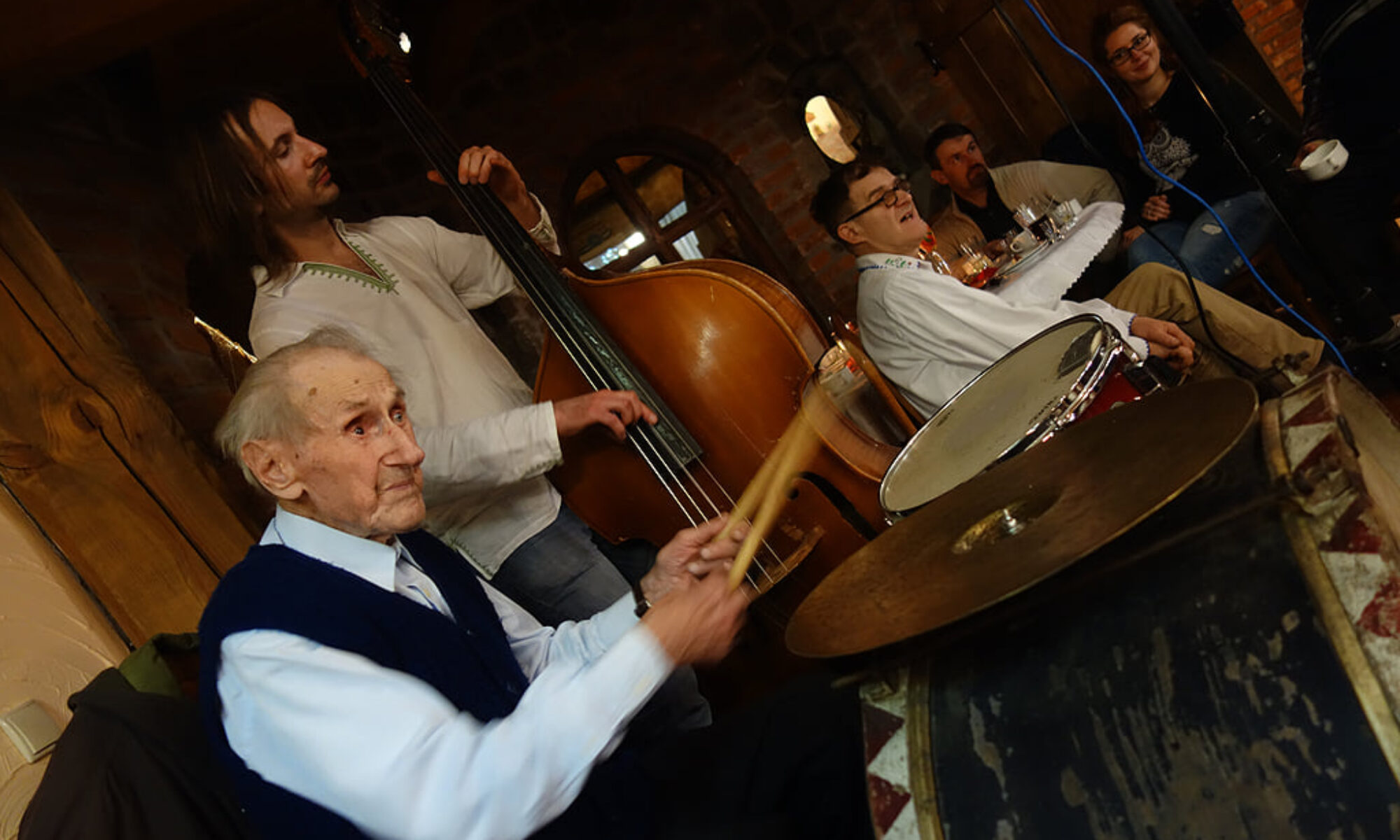Music. Dance. First sounds and first steps. The background of our cultures. The essence of our traditions. The field of meeting.
„Dances on Wooden Floors” involves music and dance events in 3 countries.
1. HUNGARY
August 22-25 in Budapest, klub Semmelweisz utca 4. – S4 Háló közösségi tér
2. POLAND
September 5-9 in Gdańsk, Pub „Paszcza Lwa”
3. SLOVAKIA
October 24-27, in Spisska Nova Ves, klub „Penzin Natali”.
During each 4-day session we will run workshops and perform music and dances. The events are free of charge for all.
Music leaders and „first violins” of the project are:
SZÉPSZERÉVEL
KAPELA OD 100DNI
JUHASKA REGUĽA
The „Dances on Wooden Floors” project is aimed at cultural exchange between partners from Poland, Slovakia and Hungary, in the field of folk music and dance. Nowadays, we are observing a decline in living traditions and a retreat from the heritage of our ancestors, which has defined our cultural identity for centuries. In our cultural area, the lack of awareness of our historical background and identity is becoming more and more noticeable, especially among young and middle-aged people. The findings show that this problem concerns the overwhelming majority of societies in our cultural circle.
It obviously also affects the regional awareness and familiarity with our native melodies and dances. We are living in the era of global culture, in which the most obvious and most accessible kind of art and entertainment is mainstream pop, which is rooted rather in American cultural circle. As opposed to our ancestors, we no longer sing the songs which would have been passed to us by our grand and great-grand parents, we do not acquire music skills at events held by the entire neighbourhood, we do not perform our native dances.
Even our education systems neglects the native (folk) culture transmission. The situation appears to be the most favourable in Hungary, where at the beginning of 20th century music educators, Kodaly and Bartok, honoured folk music and gave it an appropriate status. Poland and Slovakia weren’t as lucky and the situation there is much worse, as folklore education is absent in both general education and artistic (including music) education systems.
During the 4-day sessions in each country, the participants of the project will learn tunes and dances from the partner countries, and also practise their own. They will be given a chance to observe how similar the musical styles of our countries are, and how much they were influenced and transformed by each other during the historical changes. This is expressed in the similarities of melodies, dances and instrumental techniques of each country. We intend to learn this thoroughly and perform it together in the activities we have planned in each country. We are convinced that we will discover common features and sources of folklore tunes and dances of our countries. In each country, the participants will get exposed to the way of performing music, dances and entertainment, representative for the partner countries. We are planning to give them a unique opportunity of taking part in the traditional dancing event, where they may experience an entertainment with self-performed, sung and danced music. This is intended to be a medium that helps us define our ways of entertainment, dancing and experiencing music in a traditional, representative for our countries in the past, way. The project’s title directly refers to the common heritage of all V4 countries.
Our activities intend to serve an effective integration on the basis of common cultural heritage and respect for the differences in the cultures of individual countries. We wish to make it fully accessible and free of charge for anyone who takes interest in the cultural heritage of the three nations and wishes to participate in our activities.




